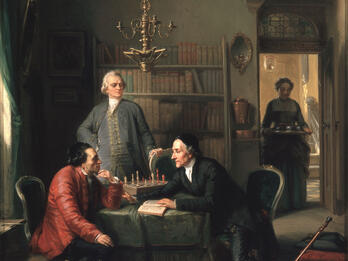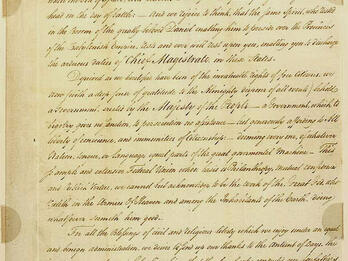Moses Mendelssohn
To the Jews of the West, Moses Mendelssohn was the figurehead of the Haskalah, the Jewish Enlightenment; to the German intellectuals of his day, Mendelssohn was a model Jew and a consequential philosopher and writer, later immortalized as the “Socrates of Berlin.” Born in 1729 in Dessau, Germany, the son of a Torah scribe, Mendelssohn moved to Berlin in 1743, to follow his teacher, David Fraenkel. Educated in philosophy, the sciences, as well as classical and European languages, Mendelssohn developed a lifelong friendship with German Enlightenment figure Gotthold Ephraim Lessing, who modeled the hero of his drama Nathan the Wise on Mendelssohn. Mendelssohn championed Jewish civil rights and played a key role in securing certain religious freedoms for German Jews.
Over the course of several decades, Mendelssohn wrote works on metaphysics and aesthetics, political theory and theology, exploring concepts such as the immortality of the soul, the validity of revelation, free will, and the relationship between religion and state. In 1783, Mendelssohn completed a translation of the Hebrew Bible into German (in Hebrew characters). His Jerusalem, or On Religious Power and Judaism stressed the uniqueness of Jewish law and argued for the rationality of the Jewish religion and its compatibility with modern life. Although he hoped to provide the intellectual infrastructure for Judaism in an enlightened society, and he clearly approved of the founding of the Jüdische Freischule (a free Jewish school in the maskilic spirit) in 1778, he did not establish schools or institutions to realize these goals.



